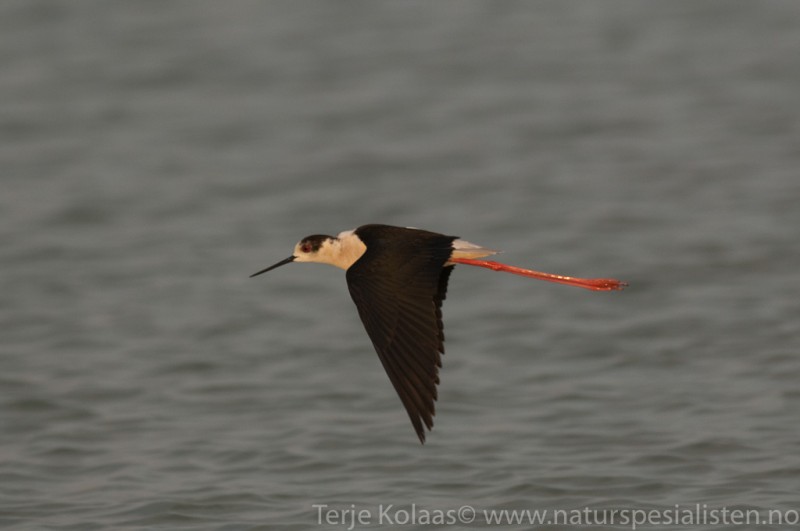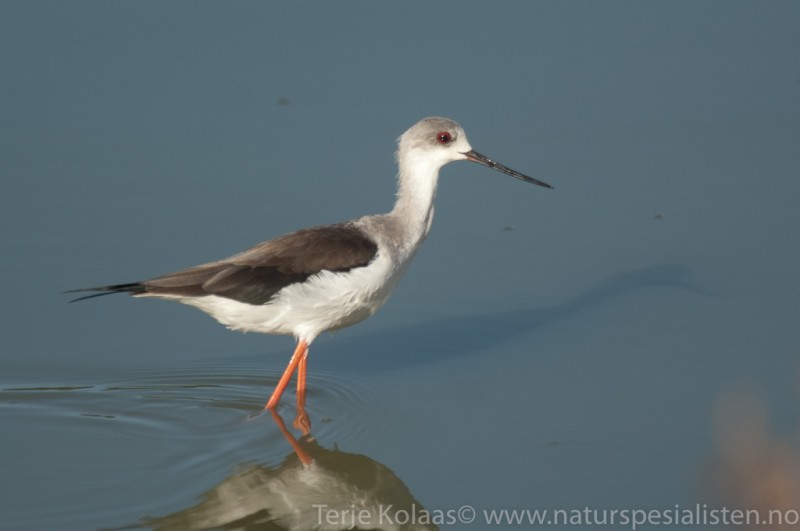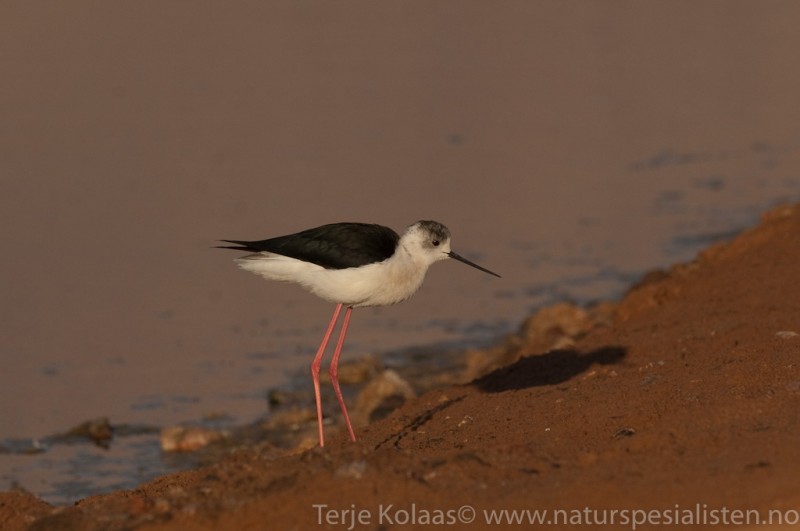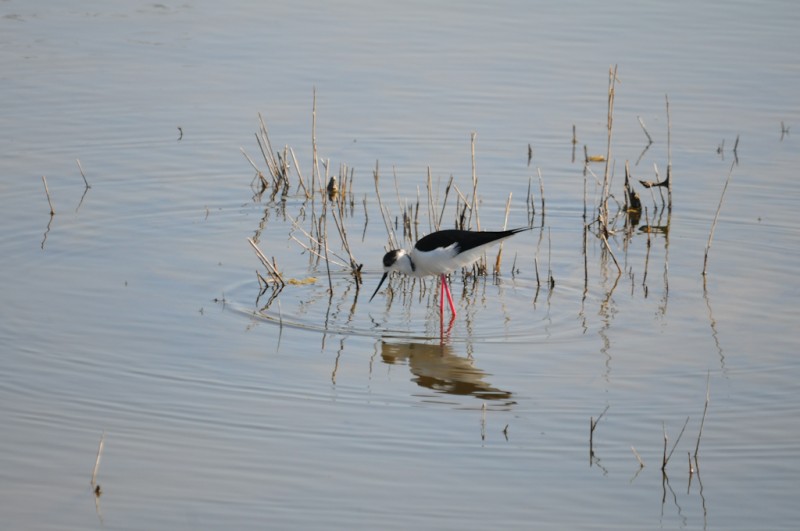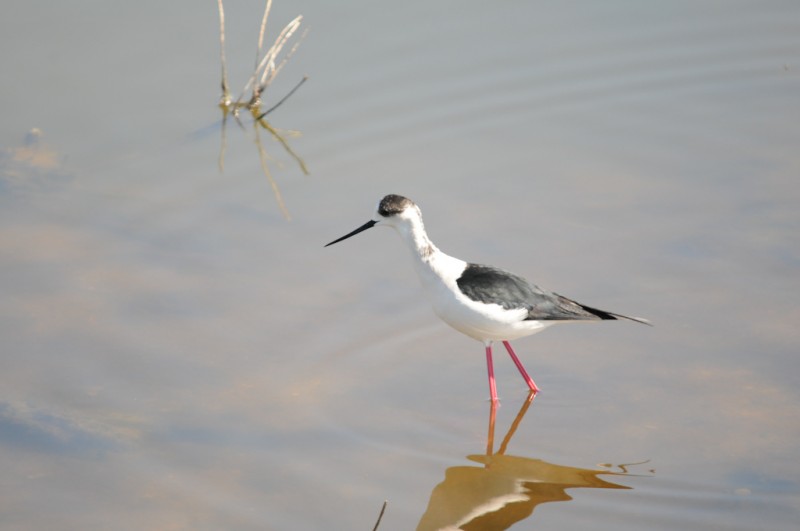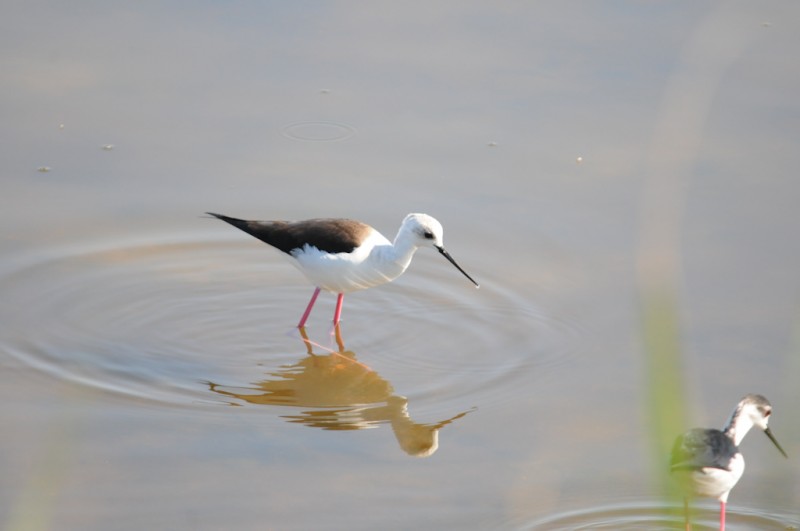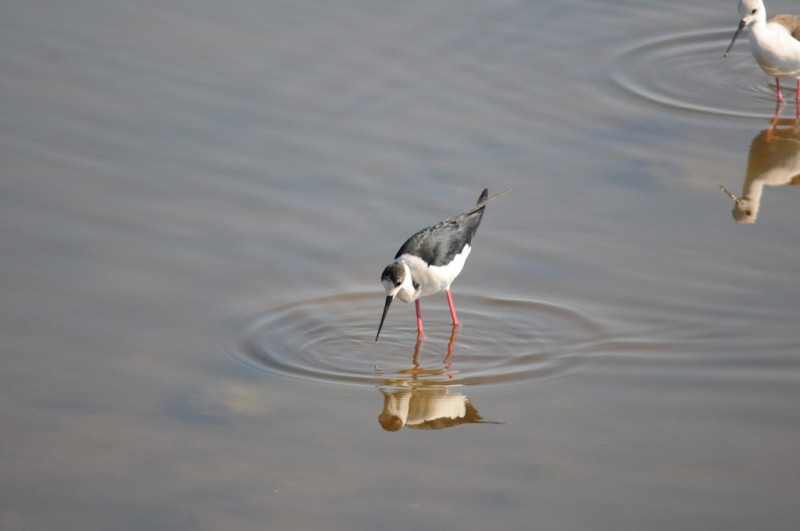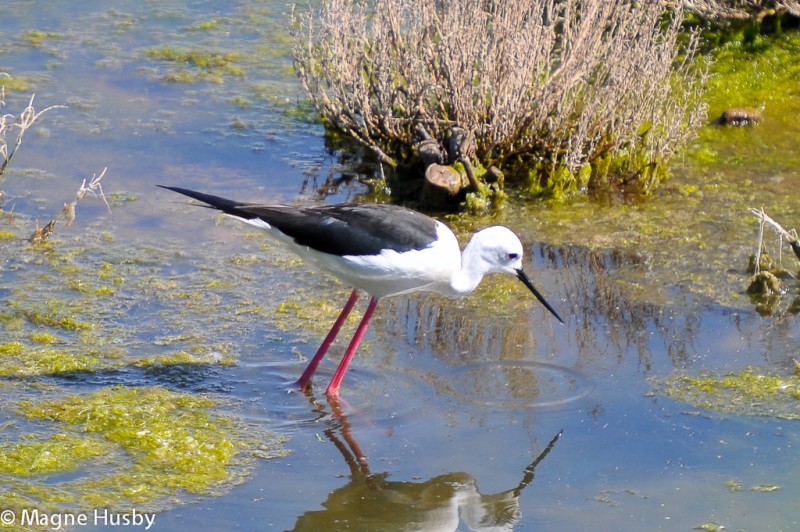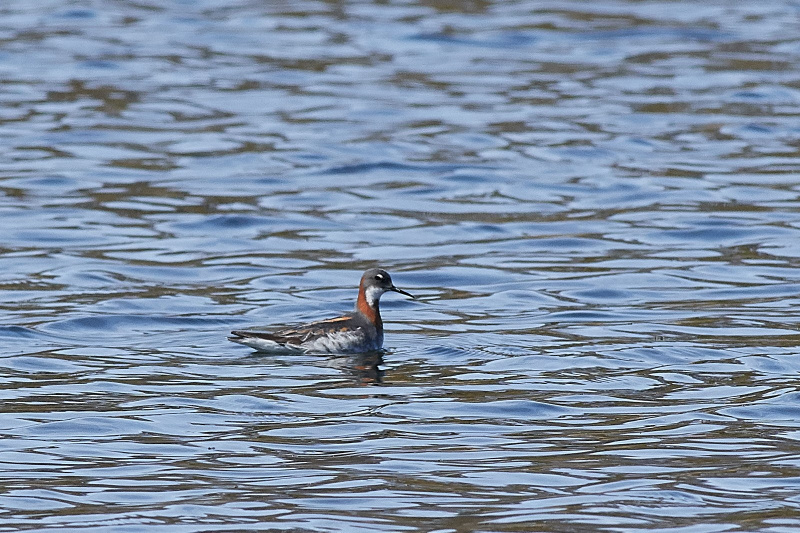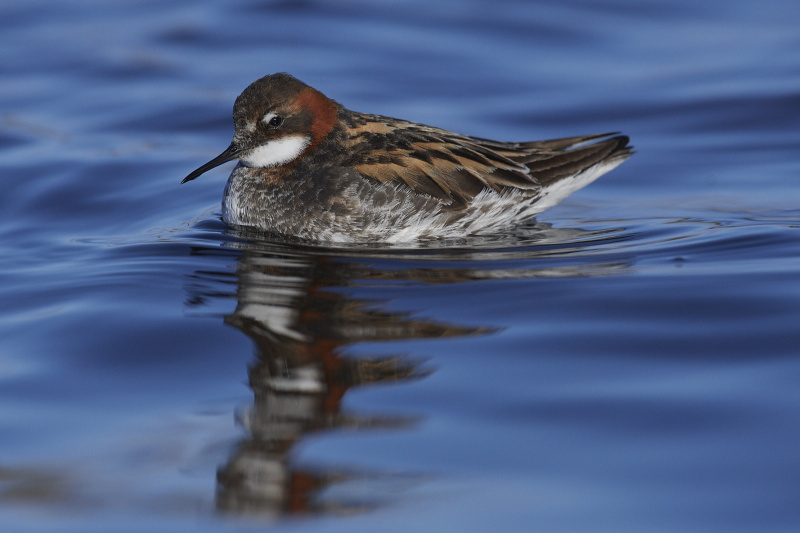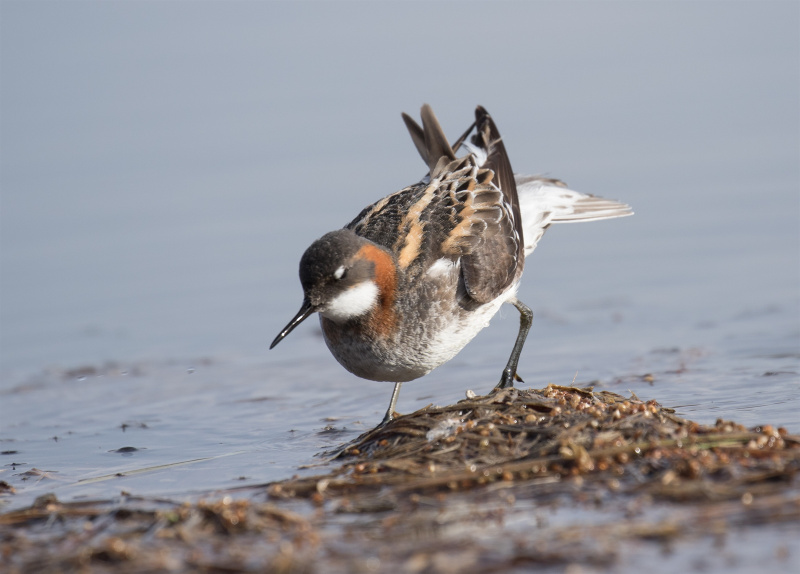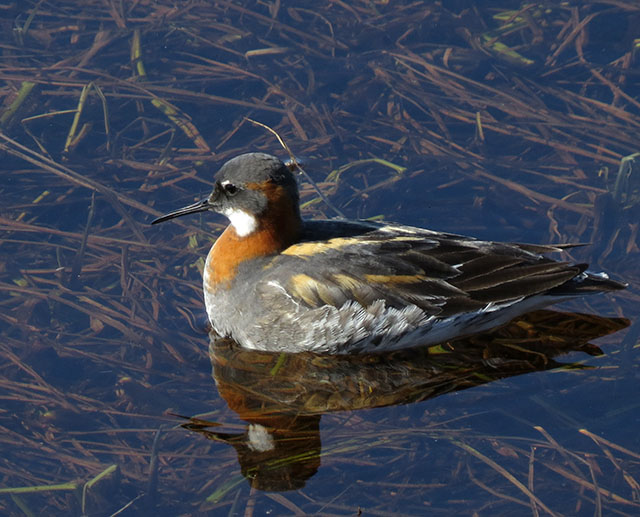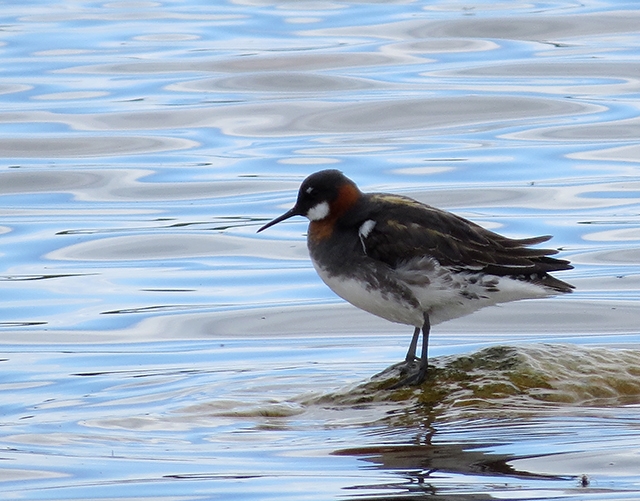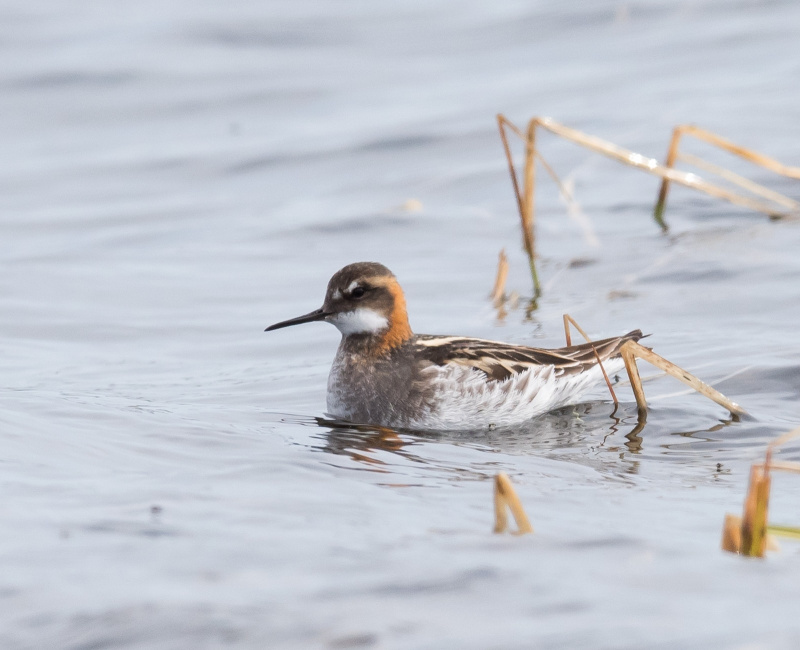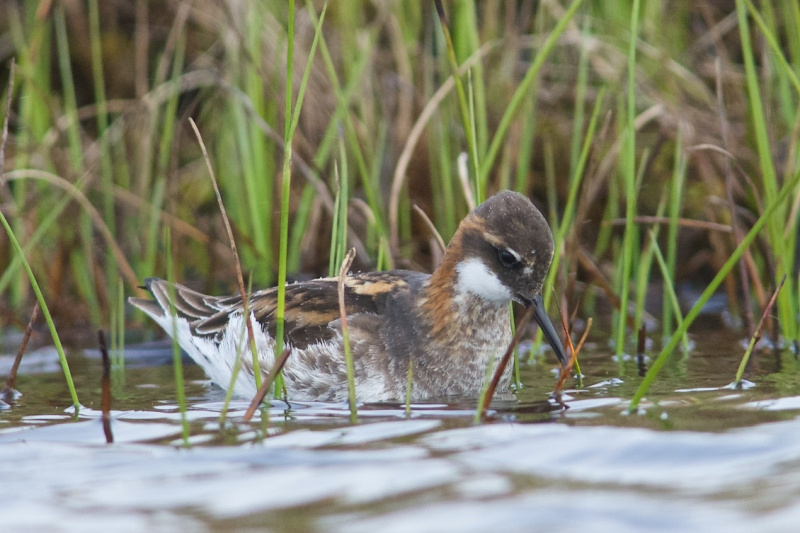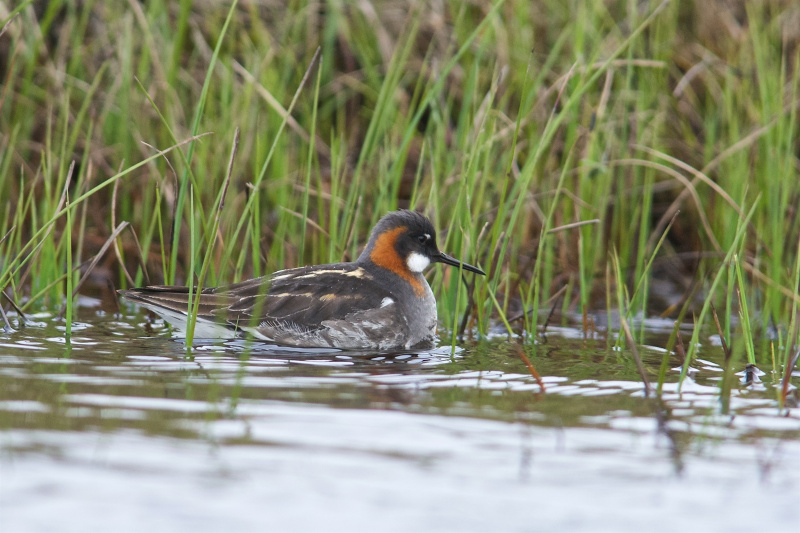Black-winged Stilt (Himantopus himantopus)
Red-necked Phalarope (Phalaropus lobatus)
Unmistakable due to the extremely long, red legs. High contrast plumage with pointed, black wings (both upper and under-side) and white underparts. Tail white, with white wedge extending up back. Back of adult male sooty black, while brownish black in female and immature. Head all white or with black markings independent of sex (males more often have black markings than females though). Immature with faint, pale fringes to coverts, and white trailing edge to secondaries visible in flight.
Sound:Most vocal at breeding ground. Various short,sharp "kyp" may resemble both Avocet, Coot and Spur-winged Lapwing (Vanellus spinosus). While a tern-like "kee-arr" is more distinct. Note that immature birds have a different contact call closely resembling Wood Sandpiper, but do not utter it in series.
Contact calls:
Distribution:
Xeno-canto: map
Ecology:Birdlife ecology
Links:
Observation.org Latest observations
Image search Flickr NB! May give other species
CCCan only be confused with other phalaropes, due to swimming behaviour. Juveniles and winter plumage birds can be mistaken for Red Phalarope, but bill is much more needle-like and neck and body more slender. Juvenile birds with prominent buff stripes on back, and first winter birds with dark fore-crown (see Red Phalarope). Adult winter with white stripes on back, as opposed to Red Phalarope's uniformly grey back.
Sound:Short and sharp "teck", sometimes repeated to form trilling series. Also a mewing, nasal "veeoo".
Contact call:
Distribution:
Wikipedia: map (se also Xeno-canto below)
Ecology:Birdlife ecology
Links:
Observation.org Latest observations
Image search Flickr NB! May give other species
CCSounds:Recorded by Patrik Åberg,http://www.xeno-canto.org ,CC license

 English
English Albanian
Albanian
 Armenian
Armenian
 Bulgarian
Bulgarian
 Catalan
Catalan
 Croatian
Croatian
 Czech
Czech
 Danish
Danish
 Dutch
Dutch
 Finnish
Finnish
 French
French
 Georgian
Georgian
 German
German
 Greek
Greek
 Hungarian
Hungarian
 Italian
Italian
 Latvian
Latvian
 Lithuanian
Lithuanian
 Macedonian
Macedonian
 Norwegian
Norwegian
 Polish
Polish
 Portuguese
Portuguese
 Romanian
Romanian
 Russian
Russian
 Sami : Lule sami
Sami : Lule sami
 Sami : North sami
Sami : North sami
 Sami : South sami
Sami : South sami
 Scientific names
Scientific names
 Serbian
Serbian
 Spanish
Spanish
 Swedish
Swedish
 Ukrainian
Ukrainian

